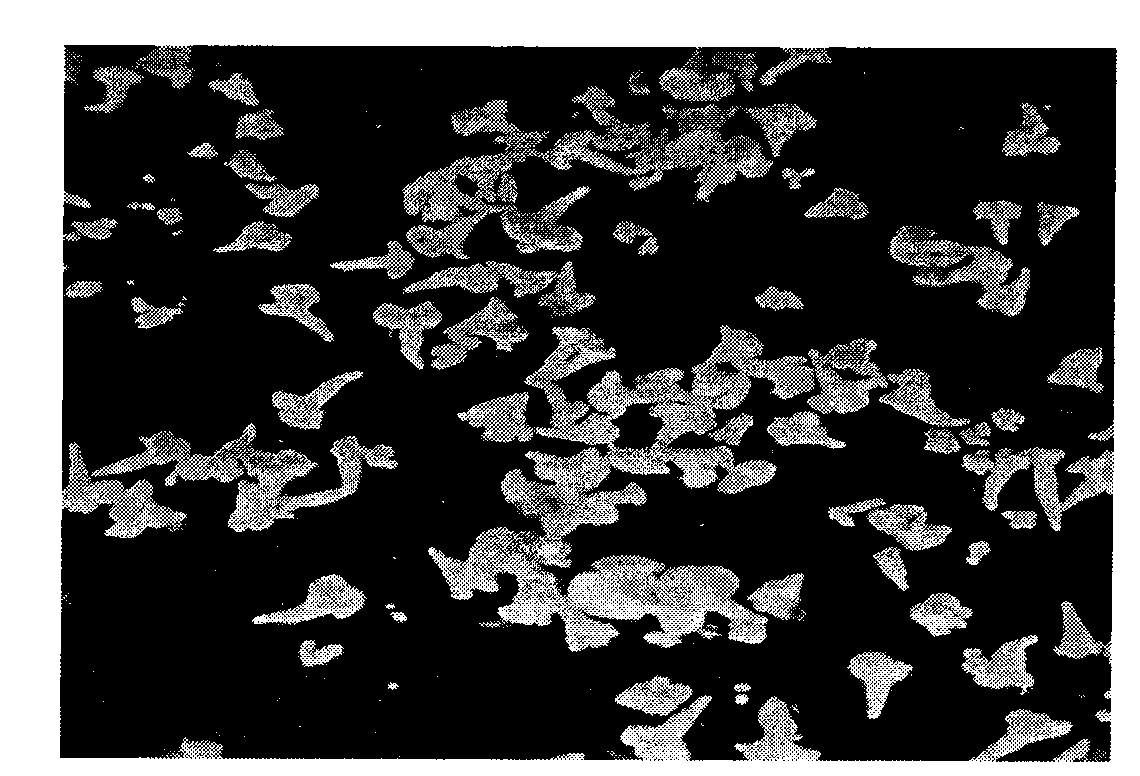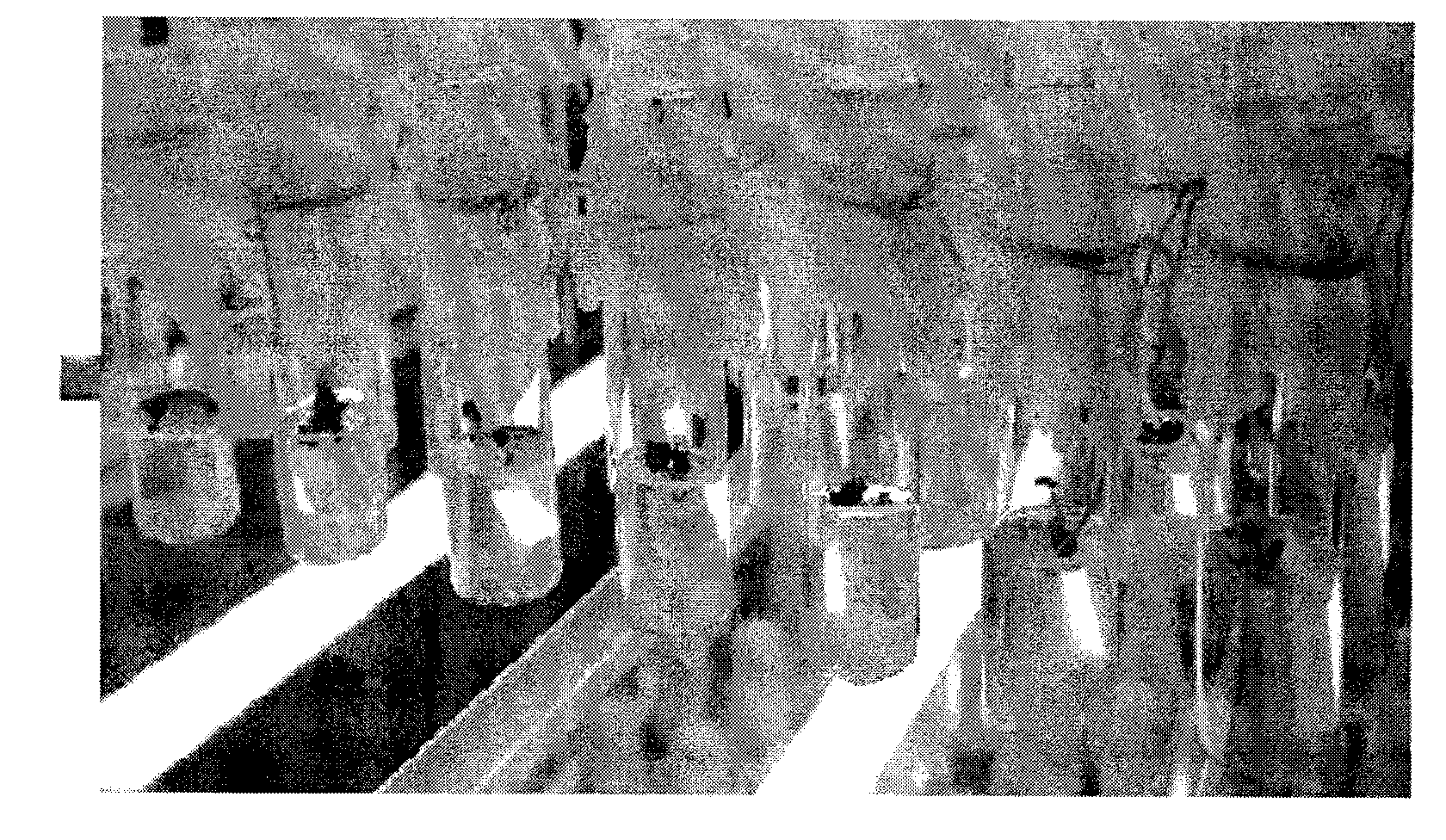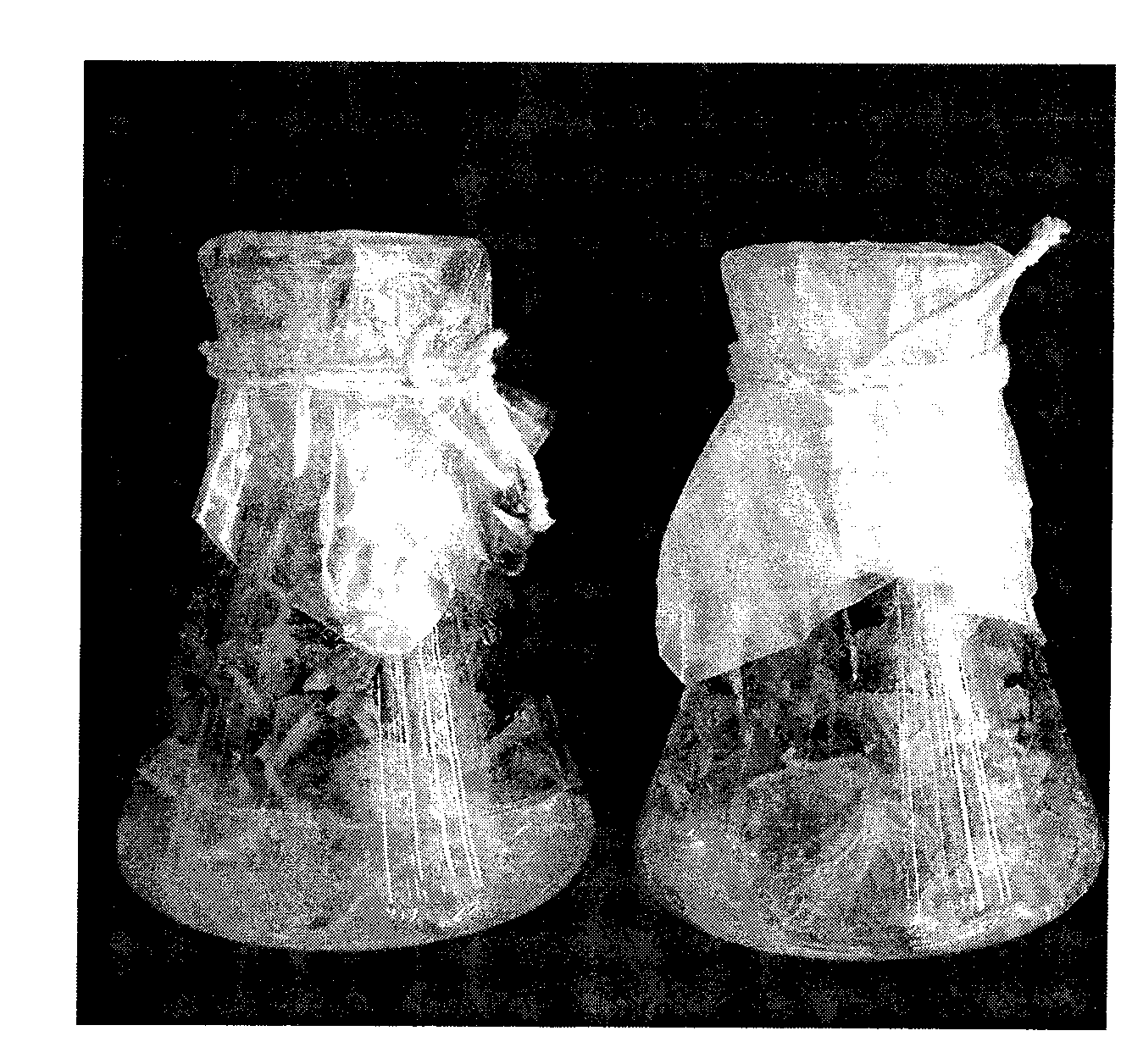Dihaploid induction method of head cabbage with high efficiency
A technology of head cabbage and double haploid, applied in horticultural methods, botanical equipment and methods, horticulture, etc., can solve the problems of inability to meet large-scale embryo production and efficient breeding, low transplanting survival rate, and weak rootlets of seedlings and other problems, to achieve the effect of eliminating the problem of vitrification, high embryo emergence rate, and green and strong performance
- Summary
- Abstract
- Description
- Claims
- Application Information
AI Technical Summary
Problems solved by technology
Method used
Image
Examples
Embodiment 1
[0024] The formulations of various media used in this example are shown in Table 1.
[0025] In this example, several cabbage genotypes of Q2, Q4, Q5, Q8, HP63 and HW06 were selected as raw materials, and the double haploids of cabbage were induced and cultivated according to the following steps, and a control group was set up at the same time. In the group, there was no colchicine doubling agent in the priming medium, and no paclobutrazol in the subculture and rooting medium:
[0026] (1) Selection of flower buds and isolation of microspores
[0027] To be grown in the artificial climate box, glass greenhouse and natural environment of the field to the initial flowering stage of cabbage, combined with microscopic examination, the size of flower buds is in the range of 3.5-5.5mm, and it is determined that the proportion of microspore development in the single-nucleus marginal stage reaches 70% For the above, select the corresponding flower buds and put them into the steel bas...
Embodiment 2
[0042] Example 2 In the process of isolation, initiation and embryo induction, the concentration of sucrose in each medium was determined by experiment
[0043] In the mid-April, 2007 flowering period, get 20 parts of head cabbage in Daejeon, the flower bud (bud size is between 3.5-5.5mm) that the proportion of microspores exceeds 70% in the marginal stage, put it into a steel basket for sterilization, and put it in a steel basket. The microspores were crushed and washed in B5 liquid medium with a sucrose concentration of 150g / L to separate the microspores, and the isolated microspores were carried out in NLN liquid medium with a sucrose concentration of 130, 140, 150, 160, 170 and 180g / L at 33°C. After high-temperature cultivation, after 2 days, observe and record the expansion of microspores, as shown in Table 3.
[0044]Table 3 The influence of different sucrose concentrations in the NLN liquid medium on the development and expansion of microspores during the start-up cultu...
Embodiment 3
[0052] Example 3 Experiments on the appropriate concentration and treatment duration of synchronous doubling induction with colchicine in the start-up culture stage
[0053] In April 2007 and 2008, buds were taken from the field at the flowering stage, separated and washed with B5 liquid medium with 150g / L sucrose concentration, NLN liquid medium with 160g / L sucrose concentration was used to start induction, and NLN liquid medium with 140g / L sucrose concentration was used to induce embryo formation , the doubling induction is to add different concentrations of colchicine in the NLN liquid medium at the start-up culture stage, and after a certain period of time (48 hours), investigate the expansion rate and the final embryo doubling situation. The results are shown in Table 5.
[0054] Table 5 Different concentrations of colchicine are treated with the doubling of embryos for 48 hours
[0055] Colchicine
[0056] Experiments have shown that colchicine can double the ...
PUM
 Login to View More
Login to View More Abstract
Description
Claims
Application Information
 Login to View More
Login to View More - R&D
- Intellectual Property
- Life Sciences
- Materials
- Tech Scout
- Unparalleled Data Quality
- Higher Quality Content
- 60% Fewer Hallucinations
Browse by: Latest US Patents, China's latest patents, Technical Efficacy Thesaurus, Application Domain, Technology Topic, Popular Technical Reports.
© 2025 PatSnap. All rights reserved.Legal|Privacy policy|Modern Slavery Act Transparency Statement|Sitemap|About US| Contact US: help@patsnap.com



